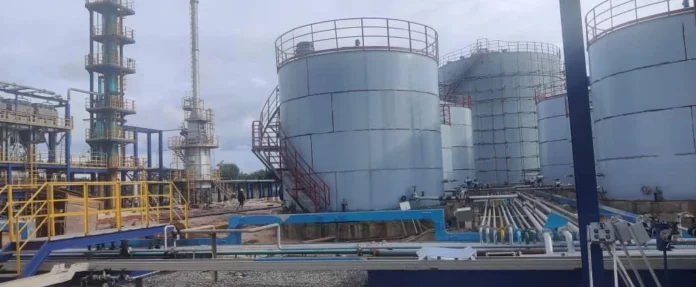Nigerians should prepare for a significant rise in petrol prices in the near future, oil marketers have warned. This comes as the Nigerian National Petroleum Company Limited (NNPCL) faces a mounting debt of over $60 billion to fuel suppliers.
In a recent interview on Channels Television’s Morning Brief, Billy Gilly-Harry, the President of the Petroleum Products Retail Outlets Owners Association of Nigeria (PETROAN), highlighted the looming challenges in the fuel sector. Gilly-Harry emphasized that the current petrol price of around ₦600 per litre may soon be a thing of the past.
Gilly-Harry urged Nigerians to expect petrol prices to be determined by market forces.
“What I will say is to encourage Nigerians to buy petroleum products at the price that the market forces will determine,” he said. He acknowledged that fuel subsidies have been a crucial support for Nigerians, but hinted that the situation might force a shift towards market-driven pricing.
The warning comes as the NNPCL has admitted to a massive debt, which is affecting its ability to supply fuel consistently. Currently, petrol is being sold for ₦950 or even over ₦1000 per litre at many filling stations not operated by the NNPCL, due to the ongoing scarcity.
Gilly-Harry also addressed the issue of NNPCL’s debt. “It is a great effort by the NNPC to come out and say it is in debt. We have advised for transparency in this sector to prevent panic and uncertainty,” he stated. He noted that such transparency could help stabilize the market and reduce panic among consumers.
The NNPCL, which is the primary supplier of petrol in Nigeria, is struggling to manage its finances and ensure a steady supply of fuel. Gilly-Harry pointed out that the company has access to funds in dollars, which could be used to import petrol, but challenges remain due to the current state of the country’s refineries.
The situation is difficult for fuel retailers as well. Gilly-Harry expressed concerns about the impact on retail outlets. “Our members have suffered greatly. Many filling stations across the country are struggling because there is no business,” he said. He called for creative solutions to address the crisis, including exploring partnerships with refineries and trading companies.
The president of PETROAN also mentioned that some of their members had previously imported petrol but stopped due to the high cost of importing. He suggested that new business arrangements and creative solutions are necessary to navigate the current challenges.
When asked about the current fuel stock in the country and its expected duration, Gilly-Harry refrained from providing specific details, suggesting that the Nigerian Midstream and Downstream Petroleum Regulatory Authority (NMDPRA) should offer clarity on the issue.
He did, however, mention that there might be new fuel supplies from the NNPCL in the near future. “I am aware that there is a possibility that on Saturday, NNPC will supply products for distribution across the country. We encourage NNPC to expedite this process,” he said.
Gilly-Harry also explained the high prices of petrol in terms of distribution costs. He used an analogy to illustrate the situation: “If you are buying water, and the supplier has to walk miles to deliver it, the price you pay will be higher than if the supplier was nearby. This is similar to the current situation where the cost of bringing in petrol is high due to the distance.”

